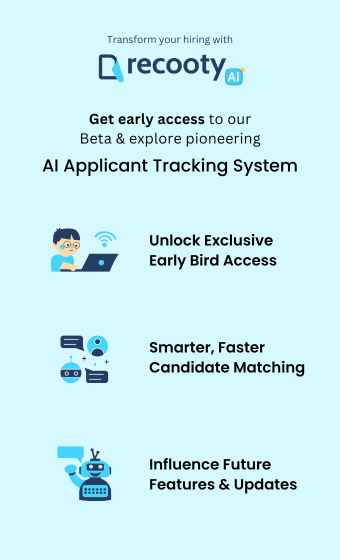Direct Support Professional Job Description Template 2024
Looking for expert assistance in crafting an impactful Direct Support Professional Job Description? Your search ends here!

Crafting a compelling Direct Support Professional (DSP) Job Description is paramount to attracting qualified candidates who can excel in this vital role. Job descriptions serve as the first point of contact between potential hires and your organization, setting expectations and guiding hiring strategies. In this guide, we provide step-by-step instructions and complimentary templates to streamline your hiring process and ensure you find the perfect fit for your team.
How to write the Direct Support Professional job description
Writing an effective job description requires careful consideration and attention to detail. Follow these six steps to create a job description that stands out:
- Conduct a thorough job analysis: Begin by understanding the specific responsibilities and requirements of the DSP role within your organization.
- Gather relevant information: Collect input from current DSPs, supervisors, and other stakeholders to ensure accuracy and completeness.
- Structure the job description: Use clear and concise language to outline the role’s key responsibilities, objectives, and qualifications.
- Include essential details: Provide specific information about the job title, department, reporting structure, and any other pertinent details.
- Highlight primary responsibilities: Clearly articulate the core duties and expectations of the DSP position.
- Specify requirements: Outline the necessary education, experience, skills, and competencies required for success in the role.
Overview of the Direct Support Professional job position
The Direct Support Professional plays a crucial role in supporting individuals with disabilities or special needs, helping them lead fulfilling lives and participate actively in their communities. As a DSP, you will provide personalized care and assistance tailored to each individual’s unique needs, fostering independence and enhancing their quality of life.
Direct Support Professional job description template sample
Job title
Direct Support Professional
Department:
[Insert Department Name]
Reports to:
[Insert Reporting Structure]
Summary:
[Company Name]
is seeking compassionate and dedicated individuals to join our team as Direct Support Professionals. In this role, you will provide personalized care and support to individuals with disabilities, empowering them to live fulfilling lives and participate actively in their communities. If you have a passion for making a difference and a desire to support others, we encourage you to apply.Responsibilities:
- Provide direct care and support to individuals with disabilities in their daily activities.
- Assist with personal care tasks, including bathing, dressing, and grooming.
- Implement individualized care plans and support strategies to meet each person’s specific needs.
- Promote independence and autonomy by encouraging and facilitating skill development and community engagement.
- Document and maintain accurate records of client progress, activities, and incidents.
- Collaborate with interdisciplinary teams, including healthcare professionals and family members, to ensure holistic care and support.
- Advocate for the rights and preferences of individuals with disabilities, promoting inclusion and empowerment.
- Monitor and address changes in clients’ health, behavior, or circumstances, escalating concerns as needed.
- Provide emotional support and companionship, fostering meaningful relationships and social connections.
- Ensure a safe and supportive environment for individuals with disabilities, identifying and addressing any potential risks or hazards.
Requirements:
- High school diploma or equivalent required; associate’s or bachelor’s degree in a related field preferred.
- Previous experience working with individuals with disabilities or in a similar caregiving role preferred.
- Training or certification in CPR, First Aid, and medication administration may be required or preferred.
Skills & Competencies:
- Strong interpersonal and communication skills, with the ability to build rapport and establish trust with individuals with disabilities.
- Compassion, empathy, and patience to support individuals with diverse needs and backgrounds.
- Problem-solving abilities to address challenges and adapt to changing circumstances.
- Flexibility and adaptability to navigate complex situations and provide personalized care and support.
- Organizational skills and attention to detail to maintain accurate records and documentation.
- Teamwork and collaboration skills to work effectively with interdisciplinary teams and external stakeholders.
Don’t like this Job Description?
Create your own job description with AI in seconds
Frequently asked questions
Direct Support Professionals provide personalized care and support to individuals with disabilities, helping them lead fulfilling lives and participate actively in their communities. They assist with daily activities, implement care plans, advocate for clients’ rights, and ensure a safe and supportive environment.
The duties and responsibilities of a Direct Support Professional include providing direct care and support, assisting with personal care tasks, implementing individualized care plans, promoting independence and autonomy, documenting client progress, collaborating with interdisciplinary teams, advocating for clients’ rights, monitoring changes in clients’ health or behavior, providing emotional support, and ensuring a safe environment.
Direct Support Professionals play a crucial role in supporting individuals with disabilities, enhancing their quality of life, and promoting inclusion and empowerment. By providing personalized care and support, advocating for clients’ rights, and fostering meaningful relationships, DSPs contribute to the well-being of individuals with disabilities and the overall mission of the organization.
Success as a Direct Support Professional requires a combination of compassion, empathy, patience, and strong interpersonal skills. DSPs should also possess problem-solving abilities, flexibility, and adaptability to address the diverse needs and challenges of individuals with disabilities. Additionally, organizational skills, attention to detail, and teamwork are crucial for effectively collaborating with interdisciplinary teams and ensuring the well-being of clients.



